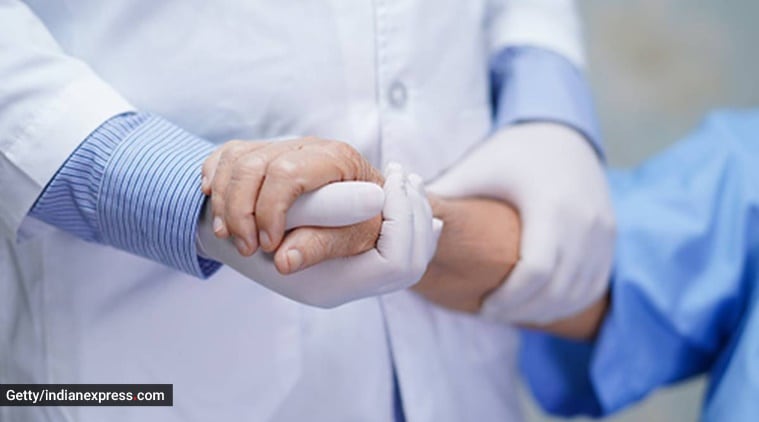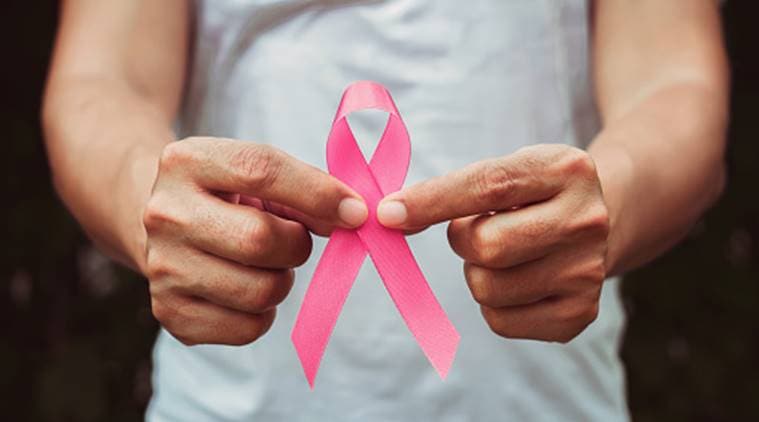
The Indian Express
Amid lockdown, are chemotherapy and cancer care at home the way forward?
The rapid spread of SARS-CoV-2, combined with an unprecedented, near-complete global lockdown, has prompted cancer patients to seek healthcare at home. This has provided a window for healthcare companies to offer home services.
by Jayashree NarayananFor a Gurgaon-based breast cancer patient, the lockdown has been a difficult time. Fearing hospital-led infections, she has been undergoing chemotherapy at home. A stage four metastatic breast cancer patient, aged 50-plus, she has been undergoing treatment for three-and-a-half years. She said, “Before the lockdown, I was going to the hospital for chemotherapy cycle and treatment every 21 days. But now, undertaking one at one.”
The sentiment is echoed in the case of a Delhi-based 79-year-old, who was detected with stage three breast cancer in early 2019. “She was in hospital care but after the pandemic and subsequent lockdown, we decided to look after her at home as per the oncologist’s advice,” mentioned a family member. The family was initially concerned about the risk of infection with “nurses and physicians” visiting the home, “but the qualified and educated professional treatment has made us feel better about taking such a service”. For two months now, the bedridden patient has been administered the essential IV drugs at home as part of chemo care.
With the lockdown restrictions amid the novel coronavirus pandemic, there has been rising concern among cancer patients whose immune systems make them susceptible to the respiratory viral infection. They are increasingly raising queries and even opting for chemotherapy at home among other oncology services for multiple type of cancers including breast cancer, blood cancers, multiple myeloma and ovary cancer.

Their concerns are not unfounded as a March 2020 report of Cancer Care Delivery Challenges Amidst Coronavirus Disease – 19 (COVID-19) Outbreak published in Asian Pacific Journal of Cancer Prevention stated how cancer patients are more susceptible to coronavirus as they are in an ‘immunosuppressive state because of the malignancy and anticancer treatment’. The report went on to highlight that ‘Oncology communities must ensure that cancer patients should spend more time at home and less time out in the community’.
Agreed Dr Manish Singhal, senior consultant, medical oncology, Apollo Hospital, “While it is not a preferred mode of treatment, it is an arrangement between the patient, oncologist and the healthcare provider/medical company to maintain the schedule of chemo sessions.”
“Desperate times call for desperate measures. While there is a risk involved in tertiary anti-cancer therapy at home, it is to be monitored effectively. Also, since at least two or more sessions are first completed in the hospital, such treatment can be provided at home if the oncologist is on board with the course of treatment that includes administering anti-cancer drugs,” Dr Singhal told indianexpress.com. He informed that he has done 25 such infusions in the past few months with the help of Apollo HomeHealth Care, hinting at an “unprecedented” demand for such tertiary care.
That is perhaps why Portea Medical, a consumer healthcare brand, recently launched chemotherapy at home services in metro cities of Delhi, Bengaluru, Mumbai, Chennai and Kolkata to help cancer patients and survivors to avoid the risk of hospital-acquired infections by recuperating at home, said Dr Vishal Sehgal, MD, Portea Medical.
“Today, medical care is at an advanced level and both hospital and home-based care is possible. If there have been no adverse reactions after the initial sessions of chemotherapy in the hospital and if the oncologist approves with a detailed protocol formulated by them, only then such a service is provided,” Dr Sehgal said.
While international brand HealthCare atHOME has been providing such a service for the past six years in India, it is now that the demand has seen a steep rise. “As OPDs are closed and patients don’t want to visit them for fear of contracting COVID, home chemotherapy and other oncology services have become a lifesaver,” said Dr Gaurav Thukral, executive vice-president and chief operating officer, HealthCare atHOME, India.
“The concept is slowly growing in India and we are trying to replicate the same model here. To build the confidence of doctors, we get them interviewed and train our existing experienced nurses. We keep them updated remotely via technology at every step of care delivery,” he said.
What happens in such at-home patient care settings?
As part of the home-based service, a trained and certified chemotherapy nurse is appointed for the session, which is supervised by a full-time doctor provided by the healthcare company. Besides administering medications like pills and injections, and IV chemotherapy or antibiotics, therapies administered via patch or suppository, the nurse reviews the health history, keeps a record and tracks pathological, laboratory and imaging studies, assesses and monitors emotional and physical status and carries out regular communication with the oncologist on a patient’s behalf.
“It is a very comfortable and smooth experience. I faced no issues at all. They have been very supportive. The oncologist has also been in constant touch with me,” according to a patient. She added that her procedure is done in a “different room where I don’t allow my family members and anyone else to come; only the doctor and the nurse who attend to me are there with me throughout”.
“Cancer patients require specialised care, attention, and monitoring as they undergo recovery at home. In such a situation, having an oncology nurse by your side ensures a proper monitoring of one’s needs and offers the care required for a speedy recovery. From assisting them in daily activities to mitigating stress during complications arising out of pain, nausea, etc, home-care assistants help prevent unnecessary distress from symptoms and make the patient feel as comfortable as possible,” remarked Dr Thukral. He added, “High standards of hygiene and infection-control at par with that of hospitals is followed.”
How convinced are doctors with it?
While several oncologists like Dr Singhal are on board with the concept, there are still others like Dr Shyam Aggarwal, senior consultant, medical oncologist, Sir Gangaram Hospital, Delhi, who holds that “it amounts to jeopardising one’s life”. “What if an adverse reaction takes place? Jeopardising the life of a patient is a risk not worth taking. Administering a drug at home is definitely very different and opens up the possibility of something going wrong manifold. The risk, therefore, lies with the treating oncologist,” said Dr Aggarwal, who has more than three decades of clinical experience.
However, given the “improvement in the quality of care for cancer patients through a patient-centered approach”, patients’ needs rather than prognosis is seen as a way of improving the quality of care, pointed out Dr Thukral. “The delivery of oncology care at home is increasingly seen as a way of improving the quality of care and as a cost-effective alternative in recent times,” he said.